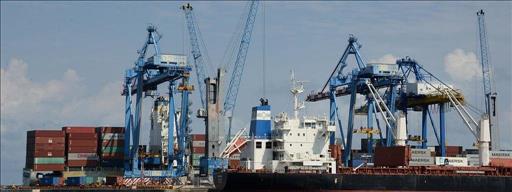
Research to Study Effects of Gulf Investments in East African Ports
Experts are launching a $500,000 research project that will examine how the increase in Gulf investments in port infrastructures in the Horn of Africa has shaped its political landscape.
Backed by funding from the Carnegie Corporation New York, researchers will explore the relationship between the Middle East and East Africa – focussing on port infrastructures and transport corridors.
Carnegie Corporation is the philanthropic foundation established by Andrew Carnegie in 1911 'to promote the advancement and diffusion of knowledge and understanding'. It is one of the oldest and most influential of grant-making foundations in the USA.
The two-year study will be led by the University of Birmingham and experts will carry out research in the United Arab Emirates as well as three East African cities: Dijibouti, Bossaso (Somalia), and Berbera (Somaliland) - exploring how people's daily lives are affected by infrastructural power contestations.
Project Leader Dr May Darwich, from the Department of Political Science and International Studies, comments: 'This project seeks to further knowledge and understanding of how infrastructural investments across regions shape political dynamics at regional, national, local, and individual levels.
CMA CGM to Launch Round The Africa Service ‘RTA' from July 25
'The project also examines how conflicts and rivalries in the Middle East - particularly in the Arabian/Persian Gulf - can be transmitted to a neighbouring region, such as the Horn of Africa, thereby affecting everyday lives of East African citizens.'
Infrastructures symbolise modernity and increase connectivity between nations. As such, they are shaped by geopolitical and geo-economic competition.
The Horn of Africa is the easternmost extension of African land and home to the countries comprises Djibouti, Eritrea, Ethiopia, and Somalia.
It has a geostrategic significance which, has led to heavy investment in its infrastructure, turning the region into a space for competition amongst Gulf States and other powers such as the USA, China and Turkey.
The project will generate primary data and knowledge on infrastructural power and the societal and political transformations that accompany such developments.
Researchers aim to build long-lasting relationships between academic communities across three continents: Europe, the Middle East, and the Horn of Africa.
The project, led by the University of Birmingham, has a team of researchers and partners from Durham University (United Kingdom), University of Hargeisa (Somaliland), Puntland State University (Somalia), and the University of Djibouti (Djibouti).
Researchers will produce a number of academic publications and policy reports, as well as developing a website providing a range of resources on port infrastructures in the Horn of Africa, relations between the Arabian/Persian Gulf and the Horn of Africa, and related societal dynamics in the Horn.
Source: Transport & Logistics Middle East

Legal Disclaimer:
MENAFN provides the
information “as is” without warranty of any kind. We do not accept
any responsibility or liability for the accuracy, content, images,
videos, licenses, completeness, legality, or reliability of the information
contained in this article. If you have any complaints or copyright
issues related to this article, kindly contact the provider above.


















Comments
No comment